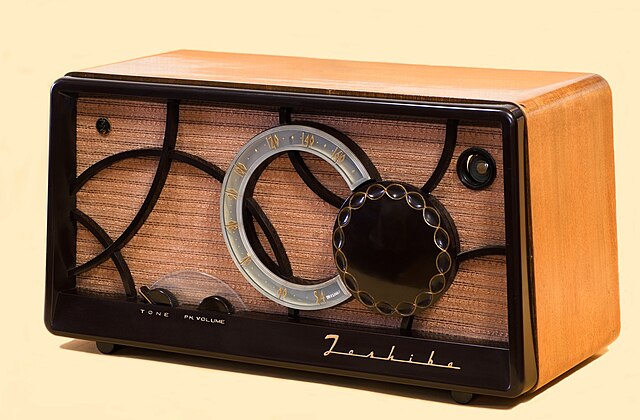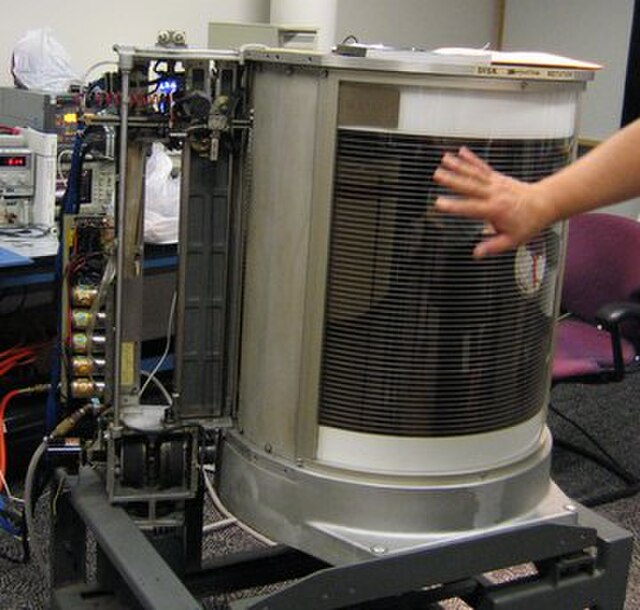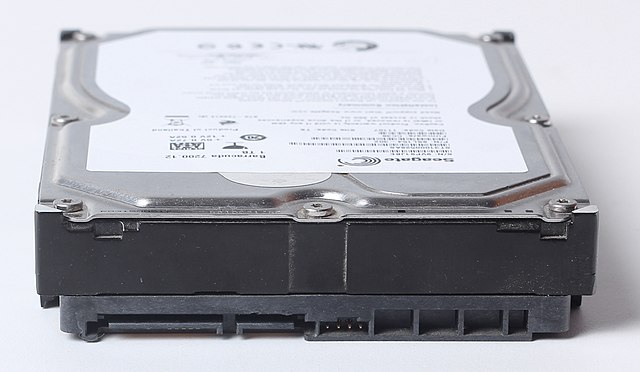Toshiba Corporation is a Japanese multinational electronics company headquartered in Minato, Tokyo, Japan. Its diversified products and services include power, industrial and social infrastructure systems, elevators and escalators, electronic components, semiconductors, hard disk drives (HDD), printers, batteries, lighting, as well as IT solutions such as quantum cryptography which has been in development at Cambridge Research Laboratory, Toshiba Europe, located in the United Kingdom, now being commercialised. It was one of the biggest manufacturers of personal computers, consumer electronics, home appliances, and medical equipment. As a semiconductor company and the inventor of flash memory, Toshiba had been one of the top 10 in the chip industry until its flash memory unit was spun off as Toshiba Memory, later Kioxia, in the late 2010s.
Toshiba's headquarters in Minato, Tokyo, Japan
AM-only Toshiba vacuum tube radio (1955)
The Toshiba pavilion at Expo '85
World-first Japanese word processor Toshiba JW-10 (1979)
A hard disk drive (HDD), hard disk, hard drive, or fixed disk, is an electro-mechanical data storage device that stores and retrieves digital data using magnetic storage with one or more rigid rapidly rotating platters coated with magnetic material. The platters are paired with magnetic heads, usually arranged on a moving actuator arm, which read and write data to the platter surfaces. Data is accessed in a random-access manner, meaning that individual blocks of data can be stored and retrieved in any order. HDDs are a type of non-volatile storage, retaining stored data when powered off. Modern HDDs are typically in the form of a small rectangular box.
A partially disassembled IBM 350 hard disk drive (RAMAC)
2.5-inch hard disk drive with cover removed
The end of a 3.5 inch hard disk drive with a Serial ATA (SATA) interface
Destroyed hard disk, glass platter visible








